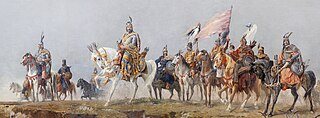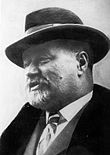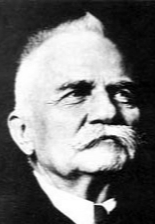| |||||||||||||||||||||||||||||||||||||||||
| |||||||||||||||||||||||||||||||||||||||||
All 312 seats to the National Assembly 157 seats were needed for a majority | |||||||||||||||||||||||||||||||||||||||||
|---|---|---|---|---|---|---|---|---|---|---|---|---|---|---|---|---|---|---|---|---|---|---|---|---|---|---|---|---|---|---|---|---|---|---|---|---|---|---|---|---|---|
| Turnout | 73.3% | ||||||||||||||||||||||||||||||||||||||||
| |||||||||||||||||||||||||||||||||||||||||
| |||||||||||||||||||||||||||||||||||||||||
 |
|---|
| This article is part of a series on the politics and government of Yugoslavia |
| Administrative divisions |
Foreign relations |
Constitutional Assembly elections were held in the Kingdom of Serbs, Croats and Slovenes on 18 March 1923. [1] The seats were divided up by the political borders which existed before the Kingdom's formation and distributed using the population statistics of 1910.
Contents
- Results
- Elected representatives
- Modruš-Rijeka electoral district with Krk and Kastav
- Požega electoral district
- Šibenik-Zadar electoral district[4]
- Syrmia electoral district
- Kotor-Dubrovnik-Split electoral district
- Varaždin electoral district with Međimurje
- Virovitica electoral district
- Zagreb electoral district
- City of Zagreb electoral district
- References
- External links
According to a TIME Magazine article published in the next week of the election, the poll was marred by voter intimidation by the military police, suppression of the opposition and the disenfranchisement of ethnic minorities like the Hungarians and the Turks. [2]

Military police (MP) are law enforcement agencies connected with, or part of, the military of a state.

Hungarians, also known as Magyars, are a nation and ethnic group native to Hungary and historical Hungarian lands who share a common culture, history and language. Hungarians belong to the Uralic-speaking peoples. There are an estimated 14.2–14.5 million ethnic Hungarians and their descendants worldwide, of whom 9.6 million live in today's Hungary. About 2.2 million Hungarians live in areas that were part of the Kingdom of Hungary before the Treaty of Trianon and are now parts of Hungary's seven neighbouring countries, especially Slovakia, Ukraine, Romania, Serbia, Croatia, Slovenia and Austria. Significant groups of people with Hungarian ancestry live in various other parts of the world, most of them in the United States, Canada, Germany, France, the United Kingdom, Brazil, Australia, and Argentina. Hungarians can be classified into several subgroups according to local linguistic and cultural characteristics; subgroups with distinct identities include the Székelys, the Csángós, the Palóc, the Matyó and the Jász people, the last being considered an Iranic ethnic group being closely related to the Ossetians.
Turkish people or the Turks, also known as Anatolian Turks, are a Turkic ethnic group and nation living mainly in Turkey and speaking Turkish, the most widely spoken Turkic language. They are the largest ethnic group in Turkey, as well as by far the largest ethnic group among the speakers of Turkic languages. Ethnic Turkish minorities exist in the former lands of the Ottoman Empire. In addition, a Turkish diaspora has been established with modern migration, particularly in Western Europe.
After the elections, an opposition Federalist Bloc was formed from the Croatian Republican Peasant Party, Slovenian People's Party and Yugoslav Muslim Organization. [3]
Yugoslav Muslim Organization was a Bosniak political party in the Kingdom of Serbs, Croats and Slovenes, later in the Kingdom of Yugoslavia. It was founded in Sarajevo on the 16 February 1919 and was led by Mehmed Spaho. The party was a successor of Muslimanska Narodna Organizacija, a conservative Bosniak party founded in 1906 during the Austro-Hungarian era. The Muslim National Organization was itself a successor of the conservative Bosniak "Movement for waqf and educational autonomy" that goes back to 1887. In election campaigns the JMO did mobilize on religious slogans rather than Bosniak nationality, calling failure of Muslims to vote for the party as a sin. The party had considerable influence in Islamic religious institutions, and JMO came to dominate the political life in Bosnia. The party appealed to Muslims throughout Yugoslavia, urging them not to migrate to Turkey.












